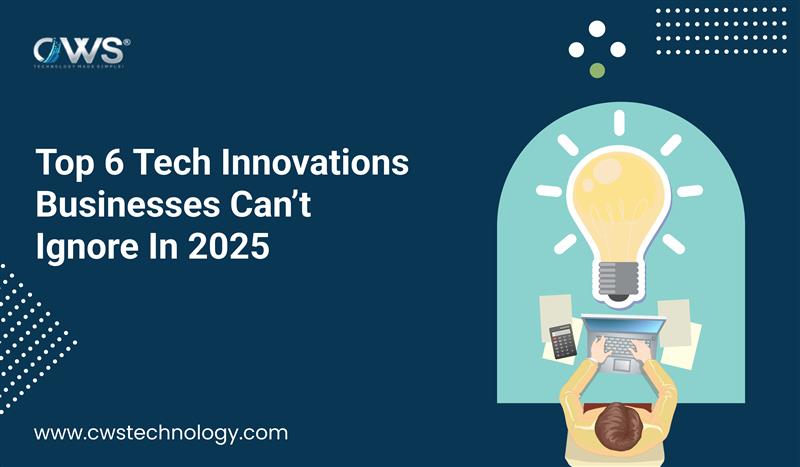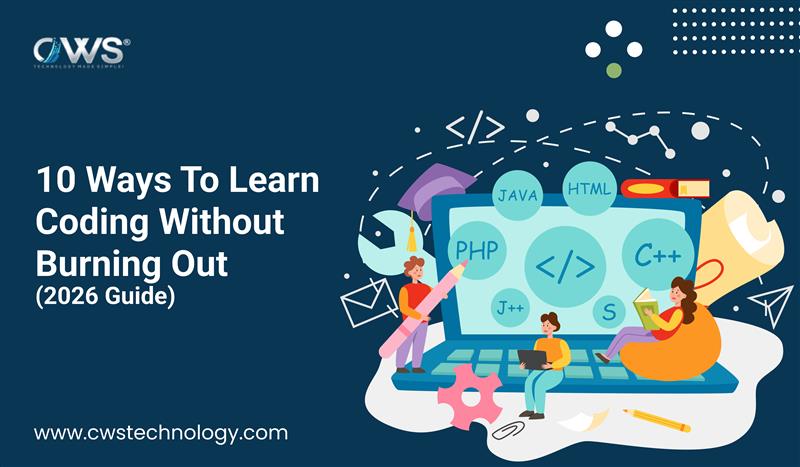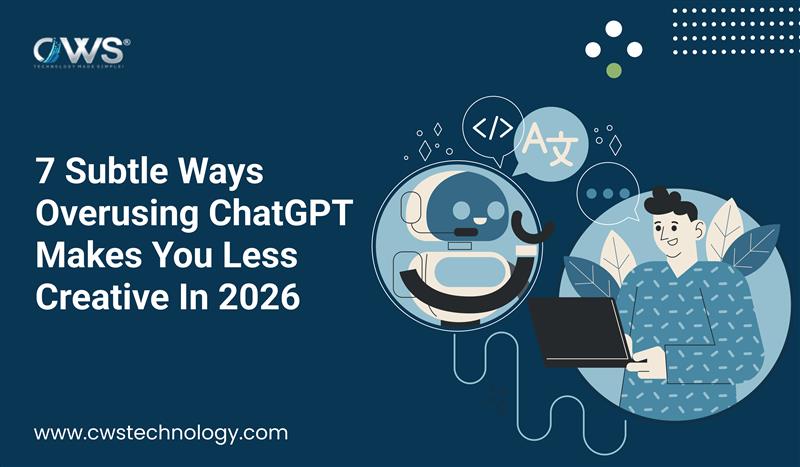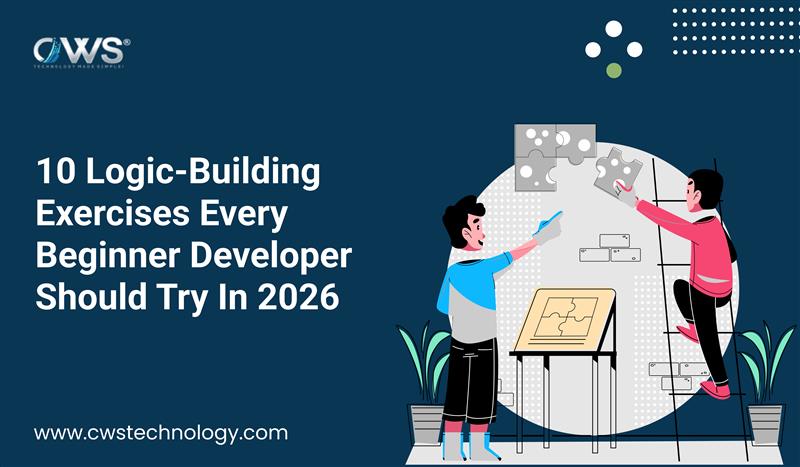Tech innovations 2025 are not just reshaping industries—they’re redefining how businesses operate, scale, and compete. In an era driven by data, intelligence, and automation, the organizations that adapt to emerging technologies are the ones that will thrive. From AI-driven decision-making to quantum-secure cybersecurity, these innovations are transforming every business process imaginable.
In this blog, we’ll explore the top 6 tech innovations businesses can’t ignore in 2025, why they matter, and how forward-thinking organisations are already leveraging them for competitive advantage.
1. Artificial Intelligence (AI) and Machine Learning Domination
AI and ML continue to be the cornerstone of digital transformation. In 2025, their integration goes far beyond chatbots and predictive analytics—it’s about AI-driven ecosystems that power entire business operations.
How AI is Transforming Businesses
- Intelligent automation: AI tools automate complex tasks such as customer service, financial analysis, and logistics management.
- Personalization at scale: AI enables hyper-personalized customer experiences through behavioral insights and predictive analytics.
- Decision intelligence: Businesses use AI-powered analytics to make data-backed strategic decisions in real time.
Example: Companies like Amazon and Tesla are leveraging AI to optimize everything from inventory forecasting to autonomous systems.
Pro Tip: Businesses must invest in ethical AI frameworks and AI governance to ensure transparency and compliance as algorithms become more autonomous.
2. Hyperautomation: The Next Level of Efficiency
Hyperautomation extends beyond traditional automation by combining AI, robotic process automation (RPA), and intelligent analytics. In 2025, it’s not just about automating tasks—it’s about automating entire workflows.
Key Benefits of Hyperautomation
- Operational efficiency: Reduces manual labor and errors by automating end-to-end business processes.
- Cost reduction: Saves significant operational costs by streamlining repetitive processes.
- Enhanced productivity: Frees employees from mundane work to focus on strategic initiatives.
Real-World Example: Banks and insurance firms are adopting hyperautomation to handle claims processing, customer onboarding, and compliance checks seamlessly.
Insight: Businesses that don’t adopt hyperautomation risk losing their competitive edge as others scale faster and smarter.
3. Cybersecurity Reinvented with AI and Zero Trust
As digital transformation accelerates, cyber threats in 2025 are more advanced than ever. Businesses are shifting from reactive defense to proactive cybersecurity strategies using AI and Zero Trust frameworks.
Modern Cybersecurity Trends
- AI-driven threat detection: Machine learning identifies and neutralizes attacks before they spread.
- Zero Trust Architecture (ZTA): Verifies every access attempt, reducing risks of insider and ransomware threats.
- Quantum-safe encryption: Prepares businesses for the next wave of cyberattacks in a post-quantum era.
Best Practice: Implement a multi-layered cybersecurity model that combines AI monitoring, employee training, and real-time response systems.
Example: Microsoft and Google are leading the Zero Trust movement, ensuring all devices, users, and apps are continuously verified.
4. Cloud Ecosystems and Edge Computing Integration
The cloud ecosystem in 2025 is evolving into an interconnected digital universe powered by edge computing. Businesses are now adopting hybrid and multi-cloud environments to maximize flexibility and minimize latency.
Why Cloud + Edge Matters
- Speed and efficiency: Data is processed closer to its source, improving real-time decision-making.
- Scalability: Cloud ecosystems provide on-demand resources for global expansion.
- Security and compliance: Advanced encryption and distributed architectures protect sensitive data.
Example: Companies in manufacturing and healthcare use edge computing for instant data processing from IoT sensors—critical for predictive maintenance and patient monitoring.
Recommendation: Adopt cloud-native architectures and edge integration strategies to stay ahead of competitors relying solely on centralized infrastructure.
5. Quantum Computing: The Next Frontier
Quantum computing is moving from theory to commercial reality in 2025. While still in early adoption, its ability to perform complex computations exponentially faster than classical computers is revolutionary.
Business Applications
- Drug discovery: Pharmaceutical firms use quantum models to simulate molecular interactions faster.
- Financial optimization: Banks use quantum algorithms for risk modeling and portfolio management.
- Supply chain optimization: Enables faster logistics and route planning with massive datasets.
Example: IBM and Google are pioneering quantum-as-a-service (QaaS) models, giving enterprises early access to quantum computational power.
Action Tip: Begin exploring quantum readiness—train teams, partner with tech providers, and identify potential use cases.
6. Sustainable Tech and Green Innovation
Sustainability has evolved from a moral choice to a business imperative. In 2025, green technology and energy-efficient systems are driving investment decisions, influencing brand reputation, and attracting eco-conscious consumers.
Sustainable Innovation Trends
- AI-driven energy optimization: Smart grids and AI reduce carbon footprints across industries.
- Circular manufacturing: IoT and blockchain ensure supply chains are transparent and waste-efficient.
- Green data centers: Companies are moving toward renewable-powered cloud operations.
Example: Tech giants like Google and Apple are investing heavily in carbon-neutral operations and sustainable manufacturing.
Insight: Businesses aligning sustainability with innovation enjoy higher market trust and investor confidence.
Conclusion: The Future Belongs to the Fast Adapters
The top tech innovations of 2025 are not futuristic dreams—they’re already transforming how industries function. AI, automation, cybersecurity, cloud ecosystems, quantum computing, and sustainability are shaping a smarter, faster, and more responsible business era.
To stay relevant, businesses must:
- Invest in emerging tech now, not later.
- Focus on cross-functional digital upskilling.
- Partner with tech innovators to accelerate adoption.
In 2025, the winners won’t be the biggest businesses—they’ll be the most adaptive ones.








